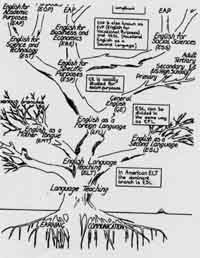2−1
Dictionary Use: What Student Vocabulary Notebooks Tell Us
Douglas S. Jarrell (Nagoya Women's University)
"Dictionaries are among the most readily available, widely used,
and cheapest learning resources that find their way into the classroom.
They are also among the most difficult to use." (Wright, J. Dictionaries,
1998). The presenter will discuss ways of instructing students to use their
dictionaries effectively. Simply looking up an unknown word when it appears
may serve no purpose, especially if the learner doesn't come across it
again. By assigning a vocabulary notebook as part of the coursework and
emphasizing the importance of writing down the more common words, the teacher
encourages the learner to work on the kind of vocabulary that will lead
to an increase in his or her understanding of everyday English. The students
are also required to write down an example taken from their reading and
choose the single definition that best fits the context. The presenter
will analyze entries and show evidence of effective (and ineffective) use
of dictionaries. It is hoped that this research will lead to a better understanding
of how learners actually use (or misuse) their dictionaries in the classroom
and may point the way to more effective dictionary training in the classroom.
2−2
An Analysis of the Change of Junior High School English Textbooks in China
HAN Weiwei (Shinshu University)
This presentation will introduce the great change in English Education
from the 1980s till now in China by comparing and analyzing the junior
high school English textbooks used during these past twenty years. In this
presentation I will compare and analyze the subject matter including intercultural
understanding, humanity and language as well as linguistic materials. The
syllabi used in the 1980s and 90s, and the one begin used now will also
be referred to. In the last part, the ideas of some Chinese teachers and
students towards the present textbooks will be presented, followed by a
discussion about the problems and shortcomings of the textbooks.
2−3
Individuals and Groups: Exploring American Culture through Juvenile Literature
Steve REDFORD (Shizuoka University)
In this presentation/paper, I discuss the role that juvenile literature
can play in helping students develop an ability to examine, evaluate, and
re-think cultural generalizations. In particular, I examine the concept
of individualism in American culture and explore how a reading of three
particular works of juvenile literature (Judy Blume's "Are You There
God? It's Me, Margaret", Jerry Spinelli's "Wringer", and
Louis Sachar's "Holes") may help students acquire a more realistic
understanding of individualism and groupism in America while also helping
them develop the mental tools needed to cope with generalization intelligently.
2−4
英語科教育におけるESPとテクニカル・ライティング
松田雄治(関西外国語大学)
 『ESPの理論と実践一これで日本の英語教育が変わる』というESP(English for Specific Purposes,論者は特務英語と称している)の解説書が最近、刊行された。書評では"日本語による初のESP入門書''と題されている。言い得て妙である。論者が93年8月に長野研究大会(全国)でESPについて発表した際の聴衆の反応は「ESP…?」であったからだ。だが、英語教育でESPが、本当に"特殊"なのだろうか。否!大学を例にとれば、一般教育課程の英語も、専門課程の英語も、見方によれば、教養英語であり、同時に特務・専門英語である。このことは、左図を参照されれば納得されよう。このESPとテクニカル・ライティングの有用性を述べる。
『ESPの理論と実践一これで日本の英語教育が変わる』というESP(English for Specific Purposes,論者は特務英語と称している)の解説書が最近、刊行された。書評では"日本語による初のESP入門書''と題されている。言い得て妙である。論者が93年8月に長野研究大会(全国)でESPについて発表した際の聴衆の反応は「ESP…?」であったからだ。だが、英語教育でESPが、本当に"特殊"なのだろうか。否!大学を例にとれば、一般教育課程の英語も、専門課程の英語も、見方によれば、教養英語であり、同時に特務・専門英語である。このことは、左図を参照されれば納得されよう。このESPとテクニカル・ライティングの有用性を述べる。
2−5
自分を守るための英語教育 English Language Education for Self-defense
三浦 孝(静岡大学英語教育講座)
気持ちよい接客のみやげ物店、優しく面倒見の良いホストファミリー、親切に道案内をしてくれる通行人、英語教材はこういう善良で平和な人々に満ちている。だが待てよ、こういう教材ばかり6年か9年も勉強しているうちに、本当に外国がそういうパラダイスのような場所だと思い込んでしまう恐れはないか?日本人海外旅行者が見知らぬ人の誘いに乗って車に同乗し、犯罪の餌食になる事件を耳にするたび、「この人たちは、日本でなら当然実行すべき安全確認を、なぜ海外では行わなかったのか」と不思議に思わざるをえない。
青少年の外国に対するあこがれを壊すつもりはない。ただ、どこの国にも悪人は存在し、人間関係の摩擦が存在することを教えることも英語教師の責任ではないか。買い物でつり銭が間違っていたらどうするか、ホストファミリーの中に好意的でない者がいたらどうするか、道を尋ねたら車に乗れといわれたらどうするか、そういう質問を生徒に投げかけてみてはどうか。
この発表では、過去の犯罪被害やトラブルの事例を分析し、日本人英語話者が被害に陥りやすいコミュニケーションパターンのからくりを解明し、自分を守るための英語教育の方法の一部を提案して、こうした研究の端緒としたい。
2−6
異文化間理解の視点で捉えてみた「ライティング」教科書教材について
東川直樹(大阪市立中央高等学校)
中等教育段階でのライティング授業において、学習者は多くのモデル文に触れることが期待される。このプロセスを通して、学習者は目標言語による発信者として、様々な言語材料を獲得する。と同時に、学習者は明示的あるいは暗示的に表れるモデル文のメッセージに触れることとなる。
本発表では、現行「ライティング」教科書教材の例文に現れた語彙の分析を通じ、モデル文のメッセージ性を異文化間理解の視点より検証、考察した結果について報告させていただきたい。
2−7
短大における英語授業へのネットワーク活用の可能性について
佐々木 裕美・堀本 千晶(愛知学泉短期大学 国際教養科)
近年の少子化のあおりを受けて、短大への入学者の英語能力に大きなレベル較差が生じ始めている。昨年本学で見られた現象は、TOEICテストで550点を突破できる学生がいる一方で200点が危うい学生がおり、この学生たちが同じ科で同レベルの授業を受けなければならなくなった、というものである。この対応に苦慮しながら、この現象自体は、実は公立の小・中学校の現場が抱えている問題でもあるのではないかと考えた。そこで、本学で取り組みを開始したネットワークを利用した英語授業の形態について紹介する。同時に、フロアからの活発なご意見やご提案を聴かせていただく機会としたい。ネットワークを利用した英語授業は、学生一人一人の可能性を伸ばすための取り組みであり、ネットワークを活用することによって、能力のある学生に対し他の学生が追いつくまで足踏みさせることなく、さらに英語諸能力を伸ばすチャンスを提供することが可能となった。英語授業でのネットワーク活用によって、今後、英語能力習得レベルでの段階別の細かなクラス分けができない現場において、いかにして学生たちのレベル較差を是正することなく、むしろ、さらに大きくすることができるのかを課題にしたいと考えている。
2−8
Self-Evaluation of Listening Comprehension: One Way to Motivate College
Students
高橋 妙子(名古屋短期大学非常勤講師/名古屋外国語大学大学院)
学生自身に自己採点(Self-Correction )させることについては、賛否両論があるが、学生自身に自己評価(Self-Evaluation
)させ、その後自己採点を行わせ、またその自己評価反応(Self-Evaluative Behavior
)の結果について調査し、その後の学生たちの学習意欲や動機 (Motivation )
の変化について、大学生対象に実験を行った。
今回は、自己評価(Self-Evaluation ) の調査にあたって、Whole Passage Dictation
を利用してListening に焦点を絞った。現在多くのテキストで掲載されていたり、授業で使われている
Dictation は、ほとんどがPartial Dictation である。Partial Dictation の主なメリットは、
* 実施、答え合わせ、採点に、あまり時間がかからない
* 重要単語や重要語句のみを書かせる
であるが、大きなデメリットとして、
* 書き込む語のみに集中して、全体の文章を聞き取ろうとしない
ことがあげられる。また、最近では特に聞こえた音のみを書き取り、聞こえなかった音については、文法力や想像力などで補うということをしない学生が増えている。
Partial Dictation のメリットとデメリットをふまえた上で、あえて時間をかけて、1クラスに
Whole Passage Dictation を実施し、学生自身に自己評価(Self-Evaluation )させ、Whole
Passage Dictation を実施しなかったクラスとその後のPartial Dictation の結果を比較した。自己評価(Self-Evaluation
)を行わせることで、学生たちの学習意欲や動機 (Motivation ) にどのような変化が起きたかについて発表する。
 『ESPの理論と実践一これで日本の英語教育が変わる』というESP(English for Specific Purposes,論者は特務英語と称している)の解説書が最近、刊行された。書評では"日本語による初のESP入門書''と題されている。言い得て妙である。論者が93年8月に長野研究大会(全国)でESPについて発表した際の聴衆の反応は「ESP…?」であったからだ。だが、英語教育でESPが、本当に"特殊"なのだろうか。否!大学を例にとれば、一般教育課程の英語も、専門課程の英語も、見方によれば、教養英語であり、同時に特務・専門英語である。このことは、左図を参照されれば納得されよう。このESPとテクニカル・ライティングの有用性を述べる。
『ESPの理論と実践一これで日本の英語教育が変わる』というESP(English for Specific Purposes,論者は特務英語と称している)の解説書が最近、刊行された。書評では"日本語による初のESP入門書''と題されている。言い得て妙である。論者が93年8月に長野研究大会(全国)でESPについて発表した際の聴衆の反応は「ESP…?」であったからだ。だが、英語教育でESPが、本当に"特殊"なのだろうか。否!大学を例にとれば、一般教育課程の英語も、専門課程の英語も、見方によれば、教養英語であり、同時に特務・専門英語である。このことは、左図を参照されれば納得されよう。このESPとテクニカル・ライティングの有用性を述べる。